Sayo Àlàgbé
Since the dawn of humanity, rivalry, jealousy, and conflict have remained inseparable aspects of human existence. These traits are deeply ingrained in our nature, coursing through our veins from birth. Only death seems capable of permanently extinguishing these flames of discord. The first recorded act of rivalry occurred in the Garden of Eden, where Cain, consumed by jealousy, killed his brother Abel because God accepted Abel’s offering over his own. Similarly, instances of favoritism and rivalry are evident in the story of Isaac and Rebecca, who each favored one of their sons, Jacob and Esau, which led to deceit and betrayal.

Such tendencies are not limited to Biblical narratives; they permeate families, communities, and professional life across the world. This article not only focuses on the persistent and often dramatic rivalry, jealousy, and discord among Nigerian musicians, particularly in the Fuji music genre; but why such recurrence time and time again.
Historically, similar rivalries have been recorded in other music genres. In the 1950s and 1960s, the Sákárà music scene witnessed intense competition among Òjíndó, S. Àká, and Yusuf Olátúnjí. The Àpàlà music maestros, such as Kasimu Adio and Alhaji Haruna Ishola, also had similar tensions, as did the iconic Àyìnlá Omowúrà and Alhaji Fatai Olówónyò. Juju music legends Chief Ebenezer Obey and King Sunny Ade also had their share of rivalry.
Fuji music, however, seems to have become a hotbed for prolonged conflict. The legendary tussle between Alhaji Kollington Àyìnlá and the late Alhaji Sikiru Ayinde Barrister set the tone for the Fuji music industry’s unending strife. Even after Barrister’s passing, the rivalry persists, with Alhaji Kollington Àyìnlá and King Wasiu Ayinde Marshall (KWAM 1) at the center of it. Kollington has reportedly refused to acknowledge KWAM 1 as a leader in Fuji music, claiming after Sikiru Ayinde Barrister, he is the next undisputably. This further fuels discord in silent and spoken manner.
Additionally, KWAM 1 has faced criticisms from other Fuji musicians, such as Alhaji Abass Òbésèrè and King Saheed Òsupà, who accuse him of undermining the late Barrister’s legacy as the creator of Fuji music. Òsupà and Pasuma, once friends, also became embroiled in a bitter rivalry. Their feud intensified when Pasuma joined KWAM 1’s Arábámbí family, a move seen as an attempt to diminish Òsupà’s influence. Despite their past conflicts, Òsupà and Pasuma have reconciled, and their renewed friendship appears solid. A good ending so to say.
However, the house of Fuji music remains turbulent. Alhaji Taye Currency recently engaged in a verbal spat with Pasuma, who accused him of initially imitating Alhaji Abbas Òbésèrè’s style, before developing his own. Efforts to mediate between the two have been unsuccessful, and tensions continue to rise.
Significantly, amid these disputes, there is hope. Alhaji Kollington Àyìnlá, the oldest Fuji musician, has reportedly begun efforts to mediate and bring unity to the Fuji music community. This initiative, if successful, could foster lasting peace and harmony among Fuji musicians. It is imperative that all stakeholders embrace reconciliation, as unity will not only benefit their craft, but also set an example for their fans to follow.
It cannot be over-emphasized that peace within the Fuji music community is achievable; if the major players: KWAM 1 and Kollington Àyìnlá; can mend their differences and mutually respect each other, others can also be achieved .Their reconciliation would likely inspire their followers to do the same, paving the way for a harmonious and thriving Fuji music industry. In a modern world that values decorum and sophistication, there is no room for discord, especially when it hinders progress and unity. Let the house of Fuji music lead by noble examples, embrace peace for the benefit of all and the craft they have chosen. A word is enough for the wise. Besides, all what our musicians have and, acquired now should be guided jealously and meticulously managed and they should be able to make good use of them. They won’t have time forever!
O7039535757.
You can get every of our news as soon as they drop on WhatsApp ...To get all news updates, Join our WhatsApp Group (Click Here)

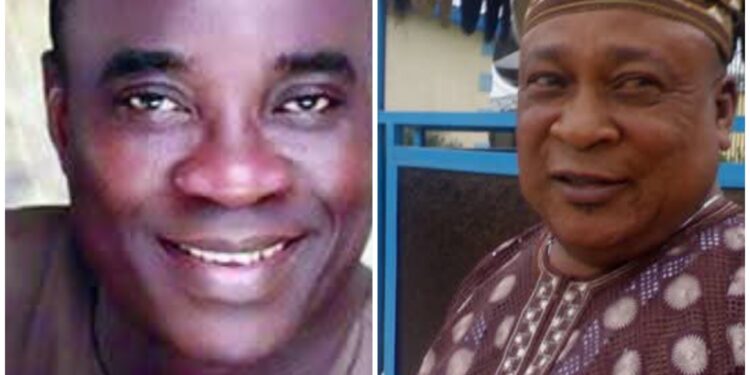

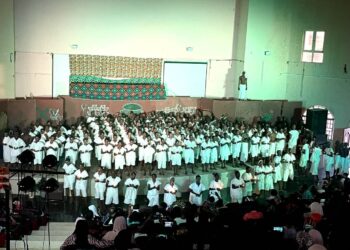



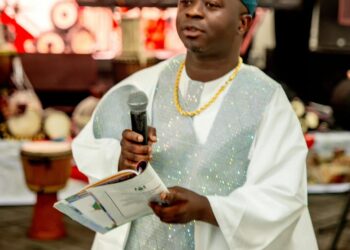

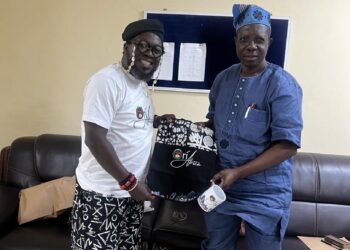

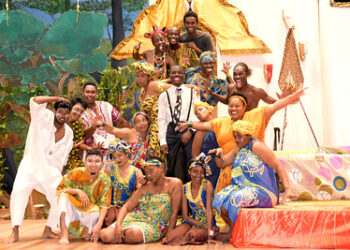
Ayinla kollington order supperseed any other Fuji musicians order No any Fuji musician can rival Ayinla kollington the only comtaperary Fuji musician was Ayinde Barrister and is late.